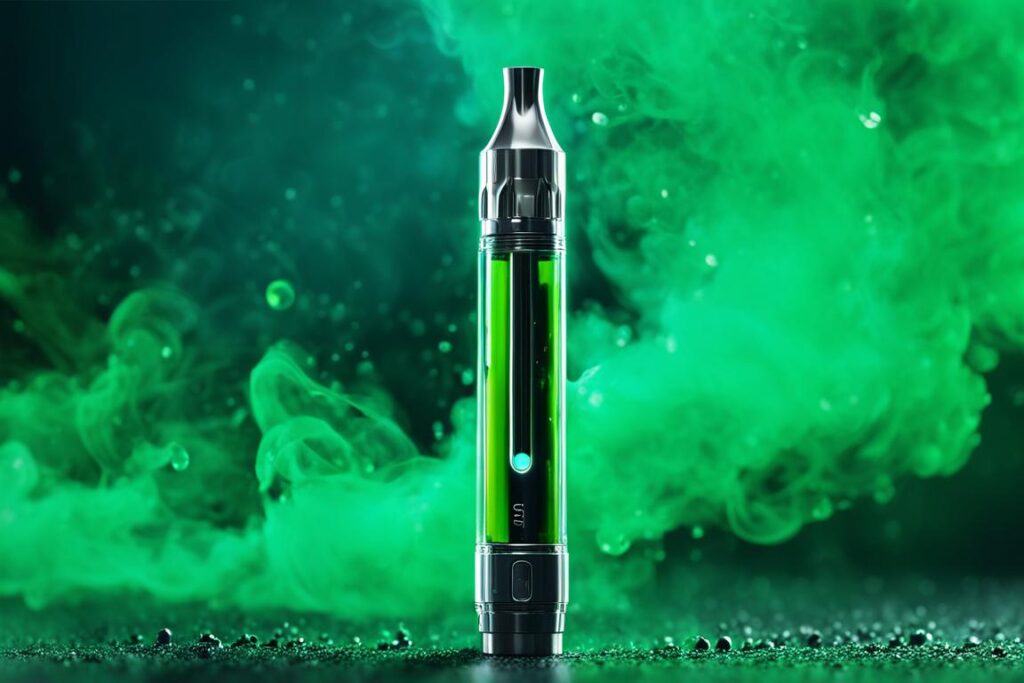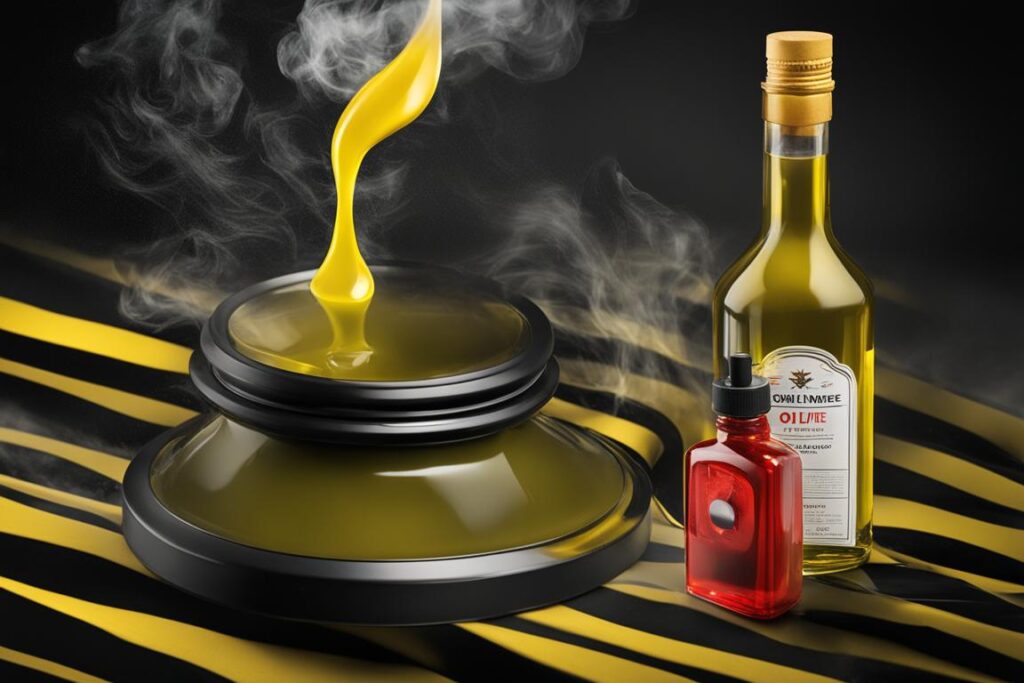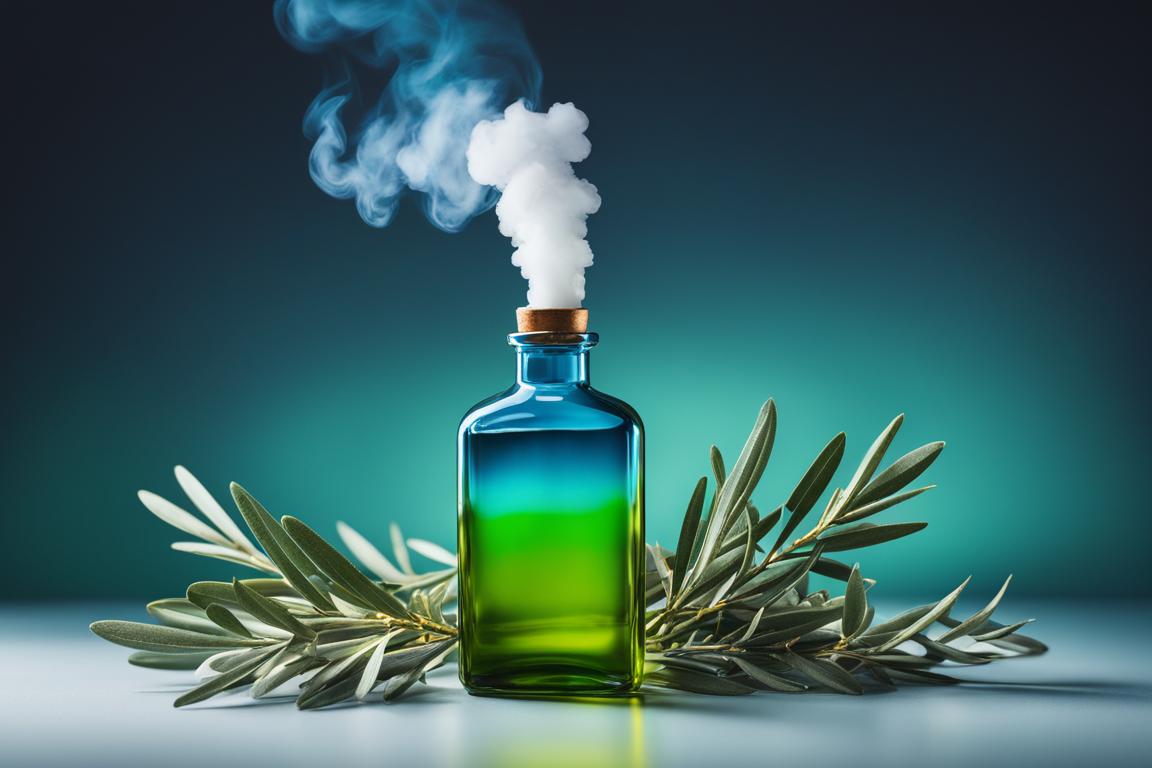Vaping has gained popularity as an alternative to smoking, with many individuals seeking a discreet and potentially healthier option. However, concerns over the safety of vaping arose when an outbreak of lung disease linked to vape additives occurred in 2019. This raised questions about the risks associated with vaping and the ingredients present in vape products.
One common question that arises is whether it is safe to vape olive oil. This article aims to provide clarity on this topic and explain the potential safety risks of vaping olive oil. By understanding these risks, individuals can make informed decisions about their vaping habits and explore safer alternatives.
Table of Contents
Toggle- The Dangers of Vaping Additives
- The Composition of Vape Juice
- The Properties of Olive Oil
- Is Olive Oil Vaping Safe?
- The Health Risks of Vaping
- Safer Alternatives for Vaping
- Conclusion
- FAQ
- Can you vape olive oil?
- Is vaping olive oil safe?
- What are the dangers of vaping olive oil?
- Can you inhale olive oil with a vape pen or vaporizer?
- What are the alternatives to vaping olive oil?
- What are the health risks of vaping?
- What are some safer alternatives for vaping?
- Are there any recent cases of lung disease linked to vaping?
- Related posts:
Key Takeaways:
- Vaping became popular as a discreet and potentially healthier alternative to smoking.
- An outbreak of lung disease in 2019 raised concerns about the safety of vaping.
- Vape cartridges may contain dangerous additives and thinning agents, such as vitamin E acetate and squalene.
- Vaping olive oil can pose serious health risks, including the development of lipid pneumonia.
- It is important to prioritize safety and explore safer alternatives to vaping olive oil.
The Dangers of Vaping Additives
Vaping olive oil may seem like a convenient and trendy alternative, but it comes with serious risks. Not all vape cartridges are created equal, and some can contain harmful thinning agents and additives that pose significant health hazards. These substances have the potential to break down into carcinogenic compounds when heated, leading to various health issues, including lung disease.
In 2019, an outbreak of lung disease known as EVALI brought the dangers of vaping additives into the spotlight. The outbreak was strongly linked to vape cartridges that contained an additive called vitamin E acetate. This cutting agent was used to dilute THC oils and increase profits by making the solution appear thicker.
“After the outbreak, most companies took action and removed vitamin E acetate from their vape products.”
This incident shed light on the deceptive practices of some manufacturers and the potential harm associated with vaping olive oil. However, the crisis didn’t end there. Another controversial additive, squalene, has emerged as a cause for concern. Like vitamin E acetate, inhaling squalene can lead to severe lung injury.
It is crucial to understand the dangers of vaping additives and be aware of the potential risks when considering vaping olive oil or any other substances.
| Additive | Dangers |
|---|---|
| Vitamin E acetate | Potential development of lung disease and severe respiratory issues |
| Squalene | Risk of severe lung injury and respiratory problems |
Vaping oils like olive oil can produce dangerous chemicals when burnt, which can lead to severe lung injury and lasting health complications. It is crucial to prioritize your well-being and explore safer alternatives to vaping olive oil that have been approved and tested for inhalation.
The Composition of Vape Juice
Vape juice, also known as e-liquid or e-juice, is the liquid used in vaping devices to create the vapor. It consists of several key components, including vegetable glycerin (VG), propylene glycol (PG), and flavorings. VG is responsible for producing dense clouds of vapor, while PG carries the flavorings effectively and provides a stronger throat hit.
Olive oil, on the other hand, has a different chemical composition compared to the traditional ingredients used in vape juice like VG and PG. While olive oil may seem like a natural substitute, it is important to note that vaping olive oil can pose serious health risks.
“Vaping olive oil can have severe consequences due to its composition of triglycerides and free fatty acids. When heated and inhaled, these compounds can lead to the development of lipid pneumonia, a condition that causes inflammation and damage to the lungs.”
To understand why vaping olive oil is dangerous, let’s examine the chemical structure of olive oil. Olive oil is primarily composed of triglycerides, which are esters of three fatty acids and glycerol. When these triglycerides are heated during the vaping process, they can break down into free fatty acids. Inhaling these free fatty acids can lead to the accumulation of lipids in the lungs, causing lipid pneumonia.
It is crucial to prioritize safety when vaping and avoid using substances like olive oil in vape pens or vaporizers. Stick to approved vape juice formulas that contain VG, PG, and flavorings specifically designed for inhalation. This way, you can enjoy your vaping experience without risking your health.

When it comes to vaping oils, it is essential to choose the right ingredients for your vape juice to ensure a safe and enjoyable experience.
The Properties of Olive Oil
Olive oil is a versatile and widely used culinary staple with a rich history dating back to ancient civilizations. It is derived from the fruit of the olive tree and contains beneficial components such as monounsaturated fats, phenolic compounds, and tocopherols. Olive oil is known for its heart-healthy properties and is a key component of the Mediterranean diet. It adds a distinctive flavor profile to dishes and is prized for its smooth and velvety texture.
However, when heated and inhaled as a vape juice substitute, olive oil can pose serious health risks due to the potential development of lipid pneumonia.
Is Olive Oil Vaping Safe?
Vaping olive oil may seem like a tempting option, but it poses significant dangers that should not be overlooked. The primary risk associated with vaping olive oil is the development of a condition called lipid pneumonia. When olive oil is heated and inhaled, it can lead to the deposition of fat particles in the lungs, resulting in inflammation and lung damage.
It’s essential to note that traditional vape juices contain approved ingredients like vegetable glycerin (VG) and propylene glycol (PG), which have different chemical compositions and properties than olive oil. These ingredients are specifically formulated for inhalation and have undergone rigorous testing to ensure safety.
To prioritize your safety when selecting vape juice, it is crucial to choose flavors from reputable manufacturers who adhere to strict safety standards. This way, you can be confident in the quality and safety of the products you are inhaling.
If you’re concerned about the potential risks of vaping olive oil, there are alternative methods of consuming substances like CBD or other vape additives. Many approved vape juice formulas are available in the market that provide safer options for vaping. Additionally, you can explore other consumption methods such as topical application or oral ingestion through foods, drinks, or gummies.

The Health Risks of Vaping
Vaping, in general, poses various health risks that individuals should be aware of. While some immediate side effects of vaping CBD, for example, may include relaxation, the long-term consequences can be severe. Vaping can irritate the lungs and compromise immune health, making individuals more susceptible to respiratory infections. Additionally, it impairs the production of nitric oxide in blood vessels, potentially leading to cardiovascular issues. The effects of vaping can increase the risk of lung and heart diseases, and in extreme cases, it can even result in death.
Vaping olive oil specifically carries its own set of health risks. One of the main dangers is the development of lipid pneumonia, a condition in which fat particles enter the lungs and cause inflammation. Lipid pneumonia is irreversible and can lead to progressive lung damage.
“The specific health risks of vaping olive oil include the development of lipid pneumonia, which is irreversible and can cause progressive lung damage.”
The Dangers of Vaping Olive Oil
Vaping olive oil can have detrimental effects on your health due to its composition and chemical properties. When olive oil is heated and inhaled, it can release dangerous chemicals and particles that are harmful to the lungs. This can result in inflammation, respiratory distress, and the aforementioned lipid pneumonia.
To illustrate the dangers of vaping oil, consider the following table:
| Health Risks | Effects |
|---|---|
| Inflammation | Can cause lung inflammation, leading to respiratory issues. |
| Respiratory Distress | Olive oil particles can trigger respiratory distress and breathing difficulties. |
| Lipid Pneumonia | Exposure to olive oil vapors can lead to the development of lipid pneumonia, a serious lung condition. |
It is crucial to prioritize your health and well-being by avoiding the dangers of vaping olive oil. Instead, consider safer alternatives and explore other methods of consuming substances. By making informed choices, you can protect your lungs and minimize the risk of experiencing adverse health effects.
Safer Alternatives for Vaping
To ensure a safe vaping experience, it is recommended to use approved vape juice formulas that contain ingredients like VG and PG. These ingredients have been extensively tested and deemed safe for inhalation.
Other alternatives to vaping olive oil include:
- Using topical CBD products
- Consuming CBD orally through foods, drinks, and gummies
It is important to consult with healthcare providers and explore alternative methods of consuming substances like CBD, especially for individuals seeking relaxation or pain relief.
Engaging in activities like meditation, exercise, or yoga can also provide healthier ways to destress without the potential dangers of vaping.
| Alternatives to Vaping Olive Oil | Vaping Oils |
|---|---|
| Approved vape juice formulas containing VG and PG | Topical CBD products |
| Using CBD orally through foods, drinks, and gummies | Engaging in activities like meditation, exercise, or yoga |
Conclusion
In conclusion, it is crucial to prioritize safety when it comes to vaping olive oil. The risks associated with vaping olive oil, such as the development of lipid pneumonia, make it an unsafe practice. The chemical composition of olive oil differs from the approved ingredients commonly found in vape juices, which can lead to potential harm when heated and inhaled. The dangers of vaping additives, including vitamin E acetate and squalene, have been extensively documented and further emphasize the need for caution.
To ensure a safer vaping experience, it is recommended to choose approved vape juice formulas that have undergone rigorous testing for inhalation. These formulas contain ingredients like vegetable glycerin (VG) and propylene glycol (PG), which have been deemed safe for vaping. Additionally, exploring alternative methods of consuming substances like CBD, such as topical products or oral consumption, can provide a safer and more reliable way to enjoy their benefits.
It is important to understand the potential risks associated with vaping olive oil and to make informed choices regarding one’s health. Engaging in activities like meditation, exercise, or yoga can also provide healthier ways to destress without the potential dangers of vaping. By prioritizing safety and exploring safer alternatives, individuals can protect their well-being and promote a healthier vaping experience.
FAQ
Can you vape olive oil?
No, it is not safe to vape olive oil. Inhaling olive oil can lead to the development of lipid pneumonia, a serious lung condition.
Is vaping olive oil safe?
No, vaping olive oil is not safe. The composition of olive oil is different from the approved ingredients commonly found in vape juices, which can lead to serious health risks.
What are the dangers of vaping olive oil?
Vaping olive oil can result in the inhalation of fat particles, causing inflammation in the lungs and potentially leading to lipid pneumonia, a condition that causes irreversible lung damage.
Can you inhale olive oil with a vape pen or vaporizer?
It is not recommended to inhale olive oil with a vape pen or vaporizer. The chemical composition of olive oil can pose serious health risks when heated and inhaled.
What are the alternatives to vaping olive oil?
Safer alternatives to vaping olive oil include using approved vape juice formulas that contain ingredients like vegetable glycerin (VG) and propylene glycol (PG). Additionally, topical CBD products and oral consumption methods such as foods, drinks, and gummies can provide alternative ways to consume substances like CBD.
What are the health risks of vaping?
Vaping, in general, is associated with various health risks such as lung and heart diseases, compromised immune health, and potential death. Specifically, vaping olive oil can lead to the development of lipid pneumonia, which causes progressive lung damage.
What are some safer alternatives for vaping?
Safer alternatives for vaping include using approved vape juice formulas, exploring other methods of consuming substances like CBD, and engaging in healthier ways to destress such as meditation, exercise, or yoga.
Are there any recent cases of lung disease linked to vaping?
Yes, in 2019, an outbreak of lung disease known as EVALI was strongly correlated with vape cartridges containing additives such as vitamin E acetate and squalene. It is important to prioritize safety and choose vape products from reputable manufacturers that adhere to strict safety standards.

